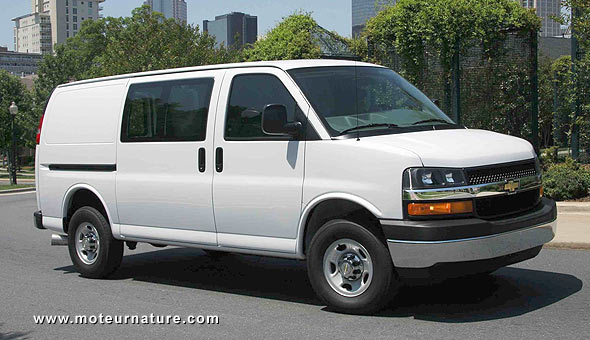
Chevrolet has just announced the availability of a Compressed Natural Gas (CNG) option for its Chevrolet Express and GMC Savana full-size vans. It’s a “check-the-box” option with full-manufacturer warranty, and it fully meets all Environmental Protection Agency (EPA) and California Air Resources Board (CARB) emission certification requirements. That sounds great but this comes at a price. $15,910. Ouch!
I understand that the ideas behind natural gas vehicles are cleaner emissions, and a cheaper fuel. But, let’s put it clearly: whatever the price of natural gas at the pump, you will never regain the 15 grands you’ve spent to get the option. And I have one question: why is this so expensive? Converting a gasoline engine to CNG requires a new fuel tank, several of them actually, as CNG is less dense than gasoline. Then new fuel lines, hardened valvetrain, and a new fuel injection system, with a complete retuning of its electronics controls. Is this really worth more than $15,000? Allow me to doubt it.
The Honda Civic, the one and only other natural gas vehicle available in the USA with its manufacturer’s blessing, is about $8,000 more expensive than the regular gasoline version. In Italy, where CNG use is much more developed, many shops advertise conversions for less than 3,000 euros (~$3,862). I guess the Chevrolet conversion was very thoroughly engineered, but I guess as well that Chevrolet could have chosen an aggressive pricing strategy, but I see that they didn’t.
Natural gas are substantially cleaner than their gasoline counterparts, with less greenhouse gas emissions, but if buying vehicles that use it requires paying a hefty premium… I doubt CNG will ever be successful.